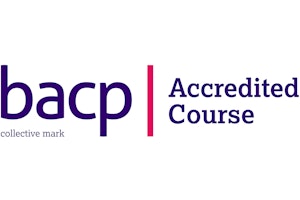Diploma in Therapeutic Counselling
About this course
In studying the Diploma in Therapeutics Counselling at CAVC you will have the opportunity to explore and understand your own place in the world and to gain the skills, knowledge to facilitate others’ exploration.
What you will study
Teaching approaches and methods reflect these concepts and time is given in the classroom and day schools to explore the philosophy and practice the skills associated with this approach. The following questions are addressed:
- What assumptions are made about the nature and development of human beings?
The humanistic existential approach advocates that humans develop in response to applied conditions of worth and develop sediment beliefs as a result
- How do psychological problems develop and what are the implications of severe pathology for practice?
Psychological problems develop as a means of responding to the anxiety and fear of navigating life experiences.
- How does the rationale and philosophy account for the perpetuation of psychological problems?
Psychological problems perpetuate because humans do not realize their freedom to make choices.
- How does the course’s rationale and philosophy explain the process of therapeutic change?
Therapeutic change can come about when nurturing conditions are put in the place by the therapist and clients are sufficiently held and challenged to explore alternative ways of living in their world.
- What therapeutic interventions are explicated within this rationale and philosophy?
The humanistic existential approach seeks to develop a therapeutic relationship that will provide the conditions for growth, while it does not advocate the use of techniques, creative interventions are used to explore the implicit.
Over the two years your study will incorporate the following 7 learning outcomes :
Unit 1 - Work ethically and safely as a counsellor
Unit 2 - Work within a counselling relationship
Unit 3 - Work with client diversity
Unit 4 - Work with a user centred agency approach
Unit 5 - Work with self-awareness in the counselling process
Unit 6 - Work within a framework of counselling theory and skills
Unit 7 - Work self-reflectively as an agency counsellor.
Introduction to the Course
“The existential approach is first and foremost philosophical. It is concerned with the understanding of people’s position in the world and with the clarification of what it means to them to be alive. It is also committed to exploring these questions with a receptive attitude, rather than with a dogmatic one. The aim is to search for truth with an open mind and an attitude of wonder rather than to fit the client into pre-established frameworks of interpretation.”(Emmy Van Deurzen).
The humanistic existential approach does not label or categorize common mental health problems but rather helps clients to manage the fear and anxiety that arises from navigating the existential givens and realms of existence. The course team believes that society has arrived at a place where the challenges of human existence are often linked to pathology and this is resulting in a society that views itself as “sick” rather than human. The humanistic existential approach to therapy therefore seeks to build resilience in clients, thereby empowering them to make choices that will enable them to live a more authentic and fulfilling existence.
How does the teaching reflect these principles?
Teaching on the course reflects the above principles and therefore tutors seek to create an environment that will facilitate students’ growth and development as human beings as well as competent practitioners. In studying a humanistic existential course, it is as much about the person you become over the two years, as it is about the skills and knowledge you acquire.
In response to the pandemic the counselling profession has offered more therapy online. While we are hopeful that therapists can return to working with clients face to face, we are also aware of the opportunities that have been created to improve access to counselling during this time, and the Diploma in Therapeutic Counselling has chosen to reflect these changes in its curriculum.
As a result the course now includes Online and Phone Therapy; BACP OPT
Competencies as part of its two year program
. https://www.bacp.co.uk/events-and-resources/ethics-and-standards/competences-and-curricula/online-and-phone-therapy/
This additional element to the course will be require some lessons to be delivered online, but will also enable students to work remotely as well as face to face with clients in their placements
With this in mind applicants need to be aware of the following additional requirements to attend the course. Namely the need for good internet connection with suitable technology/devices and the technical ability to work online. Most importantly a private space is needed to attend any online lessons, and to provide a confidential setting for client work and clinical supervision and possibly their own online personal therapy.
When will I study?
You will study in college on a Tuesday evening from 5-9pm for 34 weeks; in addition, you will need to attend 11-day schools per academic year. These are held on Fridays and Saturdays each half term, dates are given on successful application of the course to allow you to plan your commitments.
However, you should also set aside time to attend placement, regular supervision, personal therapy and a minimum of 4 hours a week home study.
Staffing
Students studying the Diploma in Therapeutic Counselling will be trained in a class size of 18 students. There are two core lecturers for the diploma, Jane Wyatt and two additional lecturers Rebecca Morgan and Ali McSorley who join the group on occasions such as the weekend day schools, where staffing ratios are increased to ensure sufficient support and assessment.
The following staff profiles indicate the breadth of experience that this committed team will bring to your learning.
Jane Wyatt BACP Accred - First Year tutor
Jane is an experienced counsellor and trainer, having led the BACP Accredited Diploma in Therapeutic Counselling for over 20 years at CAVC. Jane is the core tutor to the first-year of the diploma and coordinator of the counselling courses at the college.
Outside of her lecturing role, Jane practises as a humanistic existential counsellor with young people at UWC Atlantic, an international sixth form college; she has a small private practice in supervision at a local hospice.
Rebecca Morgan MBACP
Rebecca Morgan is qualified in humanistic existential counselling; she teaches the Level 3 courses at CAVC as well as the Diploma in Therapeutic Counselling. In addition to her lecturing role, Rebecca has her own private practice and is Counselling Coordinator at Neath and Port Talbot MIND.
Ali McSorley BACP Accred
Ali McSorley is qualified in humanistic existential counselling, she teaches on a range of counselling and health and social care courses at CAVC including the Diploma Therapeutic in Counselling. In addition to her lecturing role Ali has her own private practice, and works in the voluntary sector with referrals from Atal y Fro, an organisation supporting victims of Domestic Violence.
How will I be assessed?
Assessment is evidence based which reflects counselling practice and the counselling profession.
| Assignments Year One | Assignments year two |
| Monthly reflective journals Taped skills assessment Classroom Group supervision exercise Case study | Monthly reflective journals Mock examination Theoretical presentation and essay Case study |
| Supervisor’s report | Supervisor’s report Counselling Agency Report Evidence of a min of 15 hours personal therapy |
Some assessments will be undertaken remotely. An online proficiency test will be held at the end of term one to assess students’ readiness to practice in placement.
What about placement?
You will be required to secure a placement that is approved by the college, and to undertake 100 supervised client hours (excluding no shows). It will be your responsibility to ensure that supervision is provided to the standard required of a BACP accredited course that is a minimum of 1.5 hours a month that will enable you to present clients in supervision every two weeks. Most agencies provide this as part of their contact , but in some cases you will need to either buy your own supervision or “top up” supervision hours to meet the course requirements. This is therefore in addition to the course fees.
Please note, students are not allowed to counsel other students from either year one or year two as part of their practice while training.
Students will be trained and assessed to work face to face and remotely with clients in placement.
Can I work with children?
The BACP Accredited Diploma in Therapeutic Counselling qualifies you to work with adults in a counseling agency; as such, the majority of your client hours must therefore be with clients over the age of 18. However the course and the awarding body CPCAB recognize the growing demand for and interest in counselling in schools in Wales and so students are able to count :
- 20% of their hours with clients between the ages of 16-18
- Hours with clients under the age of 16 and of secondary school age, can only be undertaken once students have successfully completed the BACP Stage One competencies in Counselling Children and Young People, and then only 20% of 100 hours can be accounted for with this client group.
Currently no students are permitted to work online with clients under the age of 16.
What can I expect from the course?
As a BACP Accredited Course, you can expect an exceptionally high standard of teaching that will support and challenge you as a trainee both in the classroom and in your placement. CAVC has excellent relationships with local counseling agencies and these enable you to practice safely and ethically.
The BACP Ethical Framework for the Counselling Professions (July 2018) will be integrated though out your teaching and practice experience and is also modeled by competent, experienced and passionate tutors in the classroom, all core tutors are practicing BACP accredited therapists. Additional support is offered in the LRC and all tutors operate an open door/email policy in between classes.
What is the college looking for in an applicant?
We are looking for applicants who can demonstrate the following attributes that will be assessed via an interview, and a presentation as well as an academic reference from your previous tutor.
- Self-awareness, maturity and stability
- Ability to make use of and reflect upon life experience
- Capacity to cope with the emotional demands of the course
- Ability to cope with the intellectual and academic requirements
- Ability to form a helping relationship
- Ability to be self-critical and use both positive and negative feedback
- Awareness of the nature of prejudice and oppression
- Awareness of tissues of difference and equality
- Ability to recognize the need for personal and professional support
- Competence in, or the aptitude to develop generic professional skills, including: literacy, numeracy, information technology, administrative skills, self-management skills, communication and interpersonal skills
Do I need personal therapy?
The course requires you, as part of your personal development, to undertake 15 hours of personal therapy over two years. This is an additional cost to the cost of the course.
Course fee per year
Exam Fee: £393.00
Part-time enrolment fee: £40.00
Course Fee: £1,250.00
Entry requirements
Standard entry requirements for this course include: Achievement of 180 Guided Learning Hours made up of CPCAB training at Levels 2 and 3 in Counselling or equivalent plus a satisfactory interview.
Teaching and assessment
- Continuous assessments including exam
Important points
- The College welcomes contact with parents/guardians of students who are under 18.
- Additional support is available for students with learning difficulties and disabilities.
- Cardiff and Vale College is committed to inclusion and values diversity. We are determined to promote equality of opportunity and to treat everyone fairly and with respect.
- Cardiff and Vale College reserves the right to make changes to this course without prior notice.
- Course fees are subject to change. Your fee will be confirmed prior to enrolment.
- All courses are accurate at the time of upload or print.
- Courses can only run if there are sufficient numbers.
- Please note, if you choose three or more course choices, then you may be referred for a careers appointment first. This does not apply to A Level or GCSE choices.
Start date
End date
Time of day
Part Time
Course code
Qualification

Facilities
More...
Career prospects & further study
After completing this course, successful candidates may progress onto either:
- CPCAB Level 5 Diploma in Therapeutic Counselling
- CPCAB Level 5 Diploma in CBT Skills and Theory
Many students will also pursue various employment opportunities within the industry.


